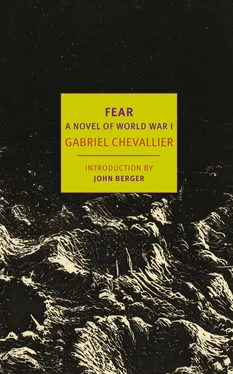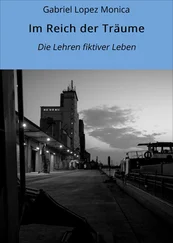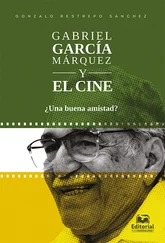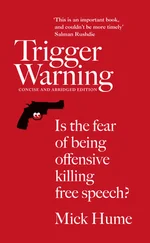The people are fired up and raring to go. The war is coming along very nicely. The statesmen of Europe can be proud!
IT WAS RAINING on the morning I set off for the army medical board which had been set up in the town hall of my arrondissement . Guessing that the cloakroom would be inadequate, I had put on my oldest clothes, the dirtiest ones I had left. I anticipated the examination with some irritation; I was annoyed at the idea of having a fully clothed man assess me at his leisure when I was completely naked, and pass judgement on my anatomy, taking advantage of the subordinate position in which I was placed. How unfair it seemed that in such circumstances someone could demand so much from my body, a body that society usually insisted I keep hidden, and that no intellectual guile on my part would be of any help in the affair. Making judgements on such a basis was already quite enough to condemn the military system, in my opinion. And, though I most certainly have no deformity, I was not quite sure that my body was perfectly proportioned (having never had it judged before except, rarely, by women, who usually don’t know much about such things), and I would have been offended if anyone had looked askance at it.
I had always hoped that I could avoid military service and its insulting rules and regulations by some last-minute ruse, but on this December day, on the contrary, my only worry was that I might be turned down. The war was already a few months old and I was beginning to fear that it might end before I got there. I saw war neither as a career nor an ideal, but as a show — in the same category as a motor race, an air display or a sports match. I was full of natural curiosity and, since this war would be the most remarkable spectacle of the age — I would not want to miss it.
The ceremony was quickly concluded, and the medical officers handled it with inattentive discretion. Their patriotism consisted of accepting every kind of body, puny or not, to feed the front. The only way to get a proper examination would be to announce your physical defects without embarrassment, and that would arouse suspicion.
We had to undress in a cramped antechamber, bumping into each other’s naked bodies, and it soon resembled a steam bath. Then, rather awkwardly, we entered the gloomy room, its walls lined with shelves packed with box files, where the medical officers waited, surrounded by their assistants, the town hall clerks. My only wish was to get this cursory examination over with as fast as possible. When my name was called I went under the height gauge and then quickly got on the scales.
An army doctor read my form:
‘Dartemont, Jean, one metre seventy-two, sixty-seven kilos. Is that you?’
‘Yes, sir.’
‘Fit for service. Next…’
I had to rummage through a heap of shoes and socks and shirts to find my clothes. Once dressed, I hurried out into the city, happy and if truth be told rather proud to be suitable material for a soldier, not to belong to that category of despised citizens in the prime of life who have stayed at home. Unwittingly, I was rather a victim of the general mood. Moreover, physical health had always seemed to me to be greatly desirable, and my own had just been confirmed by the medical officer’s decision.
I told my family the news, which they immediately and proudly circulated, thus gaining public esteem. I also told a young woman with whom I was sharing vain dreams of a future, but I discouraged her a little too tenderly.
On a cold evening in December 1914, the conscript train deposited its cargo of young men at the garrison. We set off in a crowd for the barracks. But the sentry would not let us in and summoned the NCOs. A sergeant, and then an adjutant, alarmed by our numbers, ran off to alert a commandant,[10] who soon appeared, not happy at the disturbance.
‘What’s going on here?’ he inquired.
‘Class 15 has disembarked, sir.’
‘What on earth am I supposed to do about it at six in the evening?’ he said, cursing.
‘We can always go away again…’ suggested a voice at the back.
‘Silence!’ barked the sergeant.
Hastily summoned, the barracks chief and the quartermaster declared that nothing was ready since they had not been told of our arrival. There was no food, no mattresses, and no blankets. The major paused for thought, then resolved the situation without further ado.
‘I don’t give a damn!’ he told the quartermasters. ‘I want these men fed and bedded down within two hours. Jump to it!’
And off he went. We exchanged comments.
‘Seems an awfully charming bloke, that commandant!’
‘Efficiently run here, don’t you think?’
Most of us decided to remain civilians for one more night and come back the next day. We set off to explore the town.
The chaos that reigned in barracks at this time made our lives tolerable. We naturally exploited the disorder and soon picked up the tricks of the trade of soldiering: how to fake passes, fake sickness, and fake being present at roll-call. There were not enough NCOs to supervise us, and, faced with war in the very near future, we had decided to enjoy ourselves in base camp and not let anyone treat us as ordinary conscripts. In the absence of veterans, the usual barracks traditions had been forgotten, and this also encouraged our insubordination since we did not have to endure the cruel initiation rituals of peacetime.
The first month of military service was like a fancy dress ball. Since the stores lacked uniforms all we were given were army trousers and collarless army shirts, which stuck out below our civilian jackets. Forage caps and képis were also missing, so many people had kept their own headwear. Soldiers could be seen walking around in bowler hats; one joker gained fame by bowing and doffing his hat with an exaggerated sweep of the arm as officers passed by. It was in these outfits that we were taught the external marks of respect and the basic rudiments of the discipline which is the main strength of armies, a discipline which we cheerfully resisted. For our strange disguises stopped us taking anything very seriously and, as a reminder of the exceptional circumstances, tempered any anger from our superiors. Most of our instructors, in any case, were corporals from the previous class, with only three months’ training, who were not entirely convinced of the military effectiveness of the exercises we were carrying out.
To us this training seemed a pointless sham, which could not have anything in common with the adventures in store for us — adventures whose prospect didn’t bother us but which we used as an excuse for our disobedience.
At this time I was faced with a challenge that could have affected my life and completely changed my military career.
We had been soldiers for about a fortnight when the unit leaders were asked to select men whom they considered suitable candidates for the entry exam to officer school. It was up to us to make ourselves known to them.
So I needed to know if I was going to participate in this war as an officer or a soldier. Getting myself promoted would mean making some sort of commitment to the army, an institution that I instinctively loathed, like anything else that restricted the individual and made him part of a crowd, and it would put me in conflict with myself. But I already felt that, whatever my position, my freedom was slipping away, and that by remaining an ordinary soldier I would have to endure tougher discipline, an intolerable encroachment on my own ideas and opinions which I considered to be my rights. I did not see why, out of some questionable loyalty, I should be expected to subordinate myself to inferior and ignorant authority figures whom reason taught me to loathe, and I also wanted to avoid fatigues, and other manual tasks that I naturally found repugnant. Finally, I told myself that the role of officer, by giving me a degree of initiative and responsibility, would make my job more useful and interesting. I did not have a very clear idea of what it would be like to be an officer under fire, but I believed I had enough dignity, decency or pride to shoulder the obligations it would entail. It seemed to me that the individual qualities which I vaguely felt I possessed would stand in for military qualities, and might even be superior to them. For I had nothing but contempt for purely military values. Having had this debate with myself, I put my name forward.
Читать дальше












